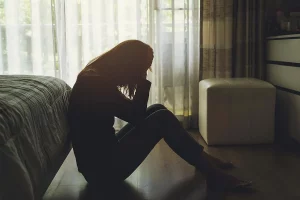Nearly three weeks after Elliot Rodger murdered seven people in Isla Vista, news about the shooting has slowed to a trickle. The only items still garnering public attention are stories about the victims’ parents taking to Sacramento to call for heightened gun control. The images filtering their way into the mainstream are easy, sympathetic, and familiar: a bereft father standing at a podium, condemning the National Rifle Association, asking, insistently, “Have we learned nothing?” Alongside the gun control stories are somber police officers quietly making the case, alongside mental health experts called in from top-tier universities, arguing for greater access to mental health care.
We have seen these tragedies, and observed collective reaction to them, countless times before. We know from past experience that very little ever actually changes in the wake of a tragedy. But in this case, more than others, there seems to be a disconnect between public calls for action and the specifics of the tragedy. We know that Rodger was receiving professional psychiatric care, and had been for some time. Three of Rodger’s seven murders were not carried out with guns – and, besides, California’s gun laws are some of the most restrictive in the United States. In light of these facts, the media’s hyper-focus on mental health care and gun control, frankly, doesn’t make a lot of sense.
Another hypothesis arose in the wake of the tragedy – one much less popular than the gun-control-and-mental-health-care cocktail preferred by the mainstream. It was a simple enough proposition: Rodger was a misogynist, and our culture’s widespread sanctioning of misogyny empowered and enabled him.
For many commentators, this is hard to swallow; Chris Ferguson, writing for Time Magazine, argued that linking cultural misogyny to Rodger’s crime was “difficult,” and closed his column with a vague call for more effective mental health care services. Never mind that Rodger was comfortably ensconced in psychiatric care, or that, in his nearly 150-page manifesto, he explicitly identified the women of the world as his tormentors. Why confront our society’s deeply ingrained hatred of women, and examine the damage and violence that hatred is causing, when you could write yet another piece arguing that “chronic mental-health issues” are to blame?
Immediately following the tragedy, when Rodger’s video testimonials and manifesto were released, many women were quick to identify in his speech the rhetoric of anti-feminism. Terms like “alpha male” and “supreme gentleman,” terms which function as a misogynistic lingua franca in many men’s online circles, peppered each page, and every clip. It was soon revealed that Rodger frequented PuaHate.com, a now-defunct online gathering place for men who label themselves “incels” – an abbreviated form of “involuntary celibates” – and discuss their dissatisfaction with “pick-up artists (PUA)” who possess superhuman capacity to win over women.
In a January PuaHate post, Rodger wrote, “One day incels will realize their true strength and numbers, and will overthrow this oppressive feminist system. Start envisioning a world where WOMEN FEAR YOU.” After Rodger’s attack, and shortly before PuaHate went offline, the forum was flooded with comments calling Rodger a hero and revolutionary.
And yet, unbelievably, some still believe linking cultural misogyny to Rodger’s murders is “difficult.”
The typical media narrative surrounding mass shootings is ill-fitting here. Let me say it again: California has substantial gun control laws on its books. Rodger was receiving psychiatric therapy. So why is the media clinging to these myths, and not addressing the plain, obvious fact of Rodger’s affiliation with violent anti-feminists?
In his Time column, Ferguson was quick to label Rodger “socially isolated,” and argued that, because “the very isolation that mass-homicide perpetrators feel makes them unlikely candidates to respond to societal trends,” he must have been immune to cultural misogyny. Labeling all shooters “loners” is a particularly popular long-standing journalistic canard. “Nearly every shooter gets tagged with that label,” Columbine author Dave Cullen once wrote, “because the public is convinced that that’s the profile, and people barely acquainted with the gunman parrot it back to every journalist they encounter. The Secret Service report determined that it’s usually not true.”
In Rodger’s case, the “loner” label simply doesn’t make sense. We have categorical proof that Rodger was part of a community which loathed women, and sought to perpetuate violence against them. My twenty years of life as a woman tell me that anti-woman sentiment, and talk of “alpha males” and “supreme gentlemen,” cannot be localized to Rodger alone. I had heard every word of his “Day of Retribution” video, it seemed, dozens of times – from trolls on Twitter, male pseudo-activists on Reddit, and disaffected suitors on OkCupid. Until the tragedy in Isla Vista, I had never heard them deployed by a mass murderer.
But perhaps I shouldn’t be so surprised. There is nothing unique about Rodger. He is not the first man to kill women. He is not the first man to use anti-feminism as a pretext for mass murder. He is not the first self-identified incel to go on a shooting spree, and if the media’s erasure of his misogyny and connection to the incel community persists, he certainly won’t be the last.
When I first heard about the shooting, and Rodger’s connections to the anti-feminist movement, I was filled with the sense that nothing would be the same after this, that surely this would be the tipping point, that the world would recognize cultural misogyny as an instigator for violence. And I’ve been disappointed by the ease with which commentators have swept Rodger’s hatred of women under the rug. Yet again, ableist concern-trolling about the connection between mental illness and violence has dominated the debate. Yet again, the media has rushed to label the shooter a loner, stripping his social incubators of any responsibility. It’s an atomistic, solipsistic portrayal of a widespread social problem. Attributing violent misogyny to one angry individual is so easy, too easy; if anything is to change – and it must change – the media must disavow itself of the cliché of the angry, anomalous loner.
Or we all lose.

















